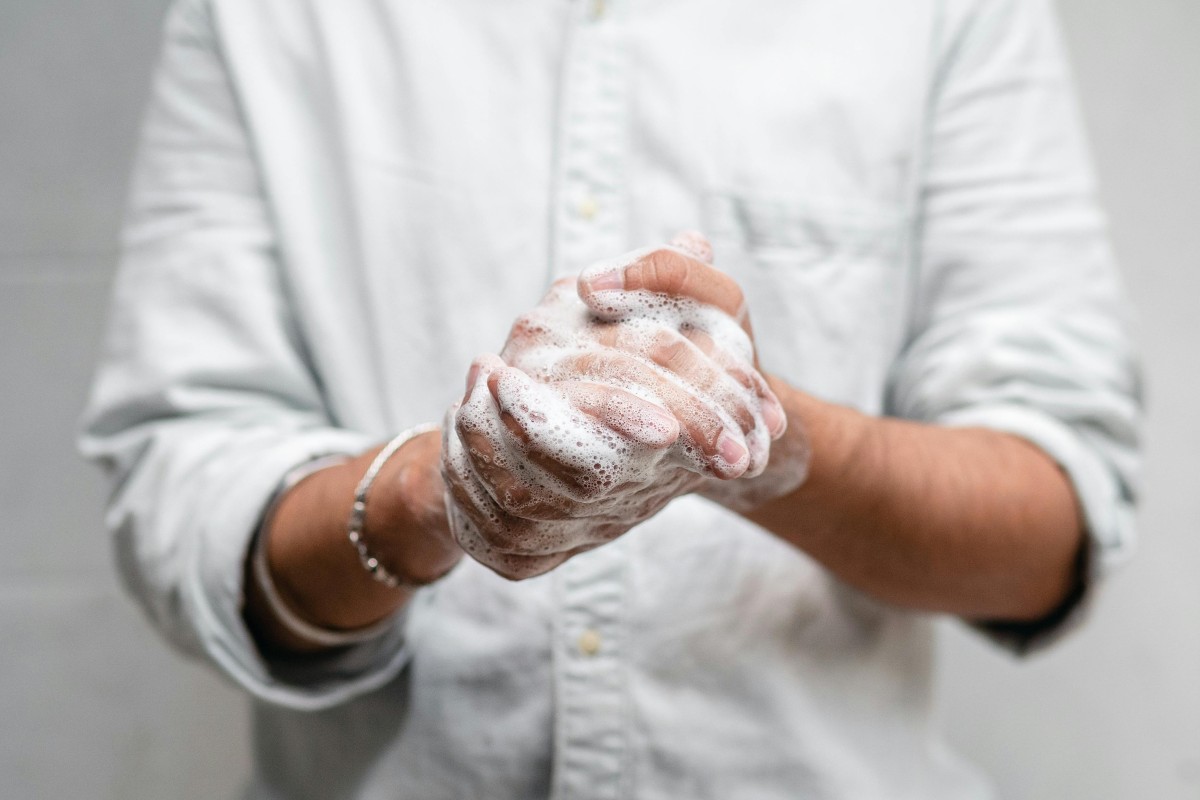Mysophobia: What It Is, Causes, Symptoms, and How to Cope

Mysophobia, also known as germophobia, is the excessive fear of germs, dirt, and contamination. While it's natural to want to stay clean and avoid illness, for those with mysophobia, these concerns become overwhelming and disruptive. In this article, we’ll explore what mysophobia is, what causes it, the symptoms to look out for, and effective treatment options — all backed by science and designed to inform and support.
What is Mysophobia?
Mysophobia is a specific phobia involving an intense fear of germs, bacteria, viruses, or contamination. Individuals with this condition often go to great lengths to avoid perceived threats, including excessive hand washing, cleaning rituals, or avoiding public spaces.
While it shares traits with Obsessive-Compulsive Disorder (OCD), mysophobia is a standalone condition that can exist with or without other mental health diagnoses.
Common Causes of Mysophobia
There’s no single cause of mysophobia, but research and clinical reports suggest a combination of biological, psychological, and environmental factors:
- Trauma or negative experiences, such as witnessing serious illness or pandemics.
- Family history of anxiety disorders or OCD.
- Media exposure to stories about disease outbreaks, bacteria, and contamination.
- Personality traits, such as high levels of anxiety or perfectionism.
Mysophobia Symptoms
If you’re wondering whether you or someone you know might be struggling with mysophobia, here are some common symptoms to look out for:
- Excessive handwashing, showering, or sanitising
- Avoiding public places or contact with people
- Using gloves or masks outside clinical settings
- Constant cleaning or sterilisation of objects and surfaces
- Intense anxiety when exposed to potential germs
- Avoiding touching doorknobs, public handles, or money
- Repetitive questioning about cleanliness or safety
These behaviours can significantly impact daily life, work, and relationships.
Mysophobia in Everyday Life
Mysophobia can manifest in subtle or extreme ways. For example:
- In the workplace, an individual may avoid shared kitchens or refuse to shake hands.
- In social settings, they may carry sanitising wipes, avoid restaurants, or leave events early.
- In the home, it may lead to excessive cleaning or rules about visitors’ hygiene.
The condition often worsens during global health scares, such as pandemics, where fears about contamination are magnified.
Diagnosing Mysophobia
A mental health professional can diagnose mysophobia through a clinical interview and symptom assessment. Diagnosis typically involves:
- Evaluating the frequency and intensity of fears
- Assessing avoidance behaviours and their impact
- Ruling out related conditions like OCD or generalized anxiety
How to Treat Mysophobia
The good news is that mysophobia is treatable. Common treatment options include:
- Cognitive Behavioural Therapy (CBT): CBT helps individuals challenge irrational thoughts about germs and gradually reduce avoidance behaviours through exposure therapy.
- Medication: In some cases, SSRIs (Selective Serotonin Reuptake Inhibitors) can help reduce anxiety levels when used in combination with therapy.
- Mindfulness and Stress Management: Practices like meditation, yoga, and breathing exercises can reduce anxiety and help regain control over intrusive thoughts.
- Psychoeducation: Understanding the real risks of germs vs. perceived threats helps people reframe their fears and take rational actions instead of compulsive ones.
Mysophobia vs. Being Hygienic: What's the Difference?
It’s important to distinguish healthy hygiene from mysophobic behaviour. Being clean and sanitary is encouraged, especially in medical settings, but mysophobia takes these habits to an irrational and often harmful extreme.
If hygiene practices interfere with your quality of life, it may be time to seek professional support.
Living with Mysophobia: Tips for Daily Life
Here are some coping strategies for people managing mysophobia:
- Set time limits for cleaning or washing activities
- Create exposure hierarchies to gradually face fears
- Limit news/media exposure related to illness or hygiene
- Join support groups online or locally
- Celebrate small wins in facing fears or resisting compulsions
Final Thoughts
Mysophobia is more than just a fear of germs — it's a complex mental health issue that can impact every aspect of life.
The key to managing it is recognition, compassion, and professional support. With the right help, it’s entirely possible to reduce anxiety and lead a balanced life.
If you think you might be experiencing mysophobia, consider speaking to a mental health professional to explore treatment options tailored to your needs.
Frequently Asked Questions (FAQs)
Q: Is mysophobia the same as OCD?
A: No, but the two can co-occur. Mysophobia is a phobia; OCD is a broader condition that may involve contamination fears as part of compulsions.
Q: Can children develop mysophobia?
A: Yes, children can develop it, especially if they experience trauma or receive excessive warnings about germs during early development.
Q: Is mysophobia common?
A: It’s relatively common, particularly in the aftermath of health crises like pandemics. Many people experience mild symptoms, but not all meet the criteria for a phobia.
What Next?
🔗 Follow us on Social Media, here is our LINK TREE
✉️ See how our additive technology can benefit your business by CONTACTING US
🦠 Find out more about Biomaster Antimicrobial Technology HERE
🎥 Watch our video on how Biomaster works WATCH NOW
📰 Subscribe to our Newsletter - SUBSCRIBE
Cite This Post
APA Style
P. Willocks (2025). Mysophobia: What It Is, Causes, Symptoms, and How to Cope. Retrieved May 23rd, 2025,
from https://www.addmaster.co.uk/blog/mysophobia-what-it-is-causes-symptoms-and-how-to-cope
MLA Style
Willocks, Paul. “Mysophobia: What It Is, Causes, Symptoms, and How to Cope.” Web. May 23rd, 2025.
https://www.addmaster.co.uk/blog/mysophobia-what-it-is-causes-symptoms-and-how-to-cope.
Chicago Style
P. Willocks. “Mysophobia: What It Is, Causes, Symptoms, and How to Cope.” Last modified May 23rd, 2025.
https://www.addmaster.co.uk/blog/mysophobia-what-it-is-causes-symptoms-and-how-to-cope.
← Back to blog



